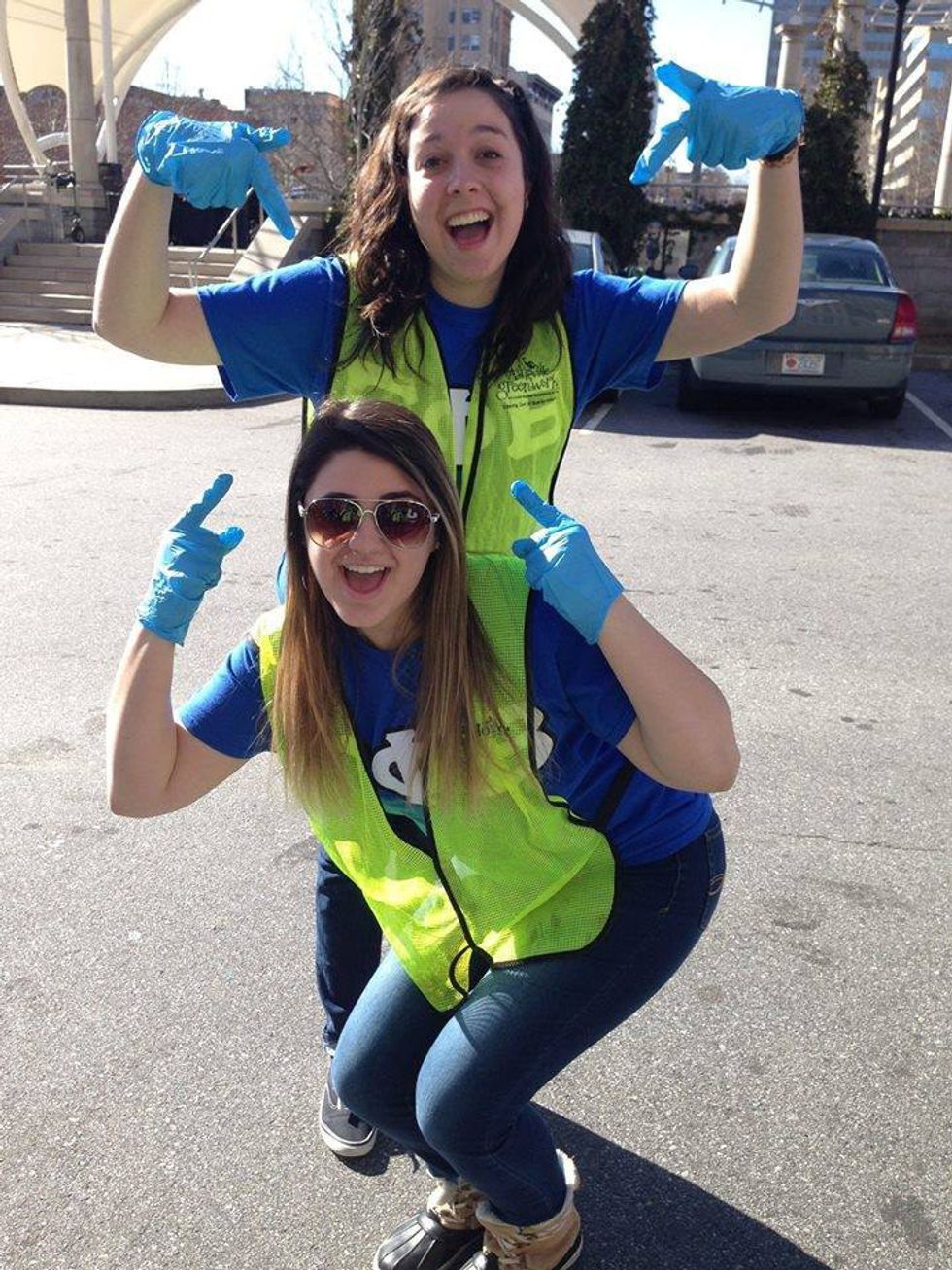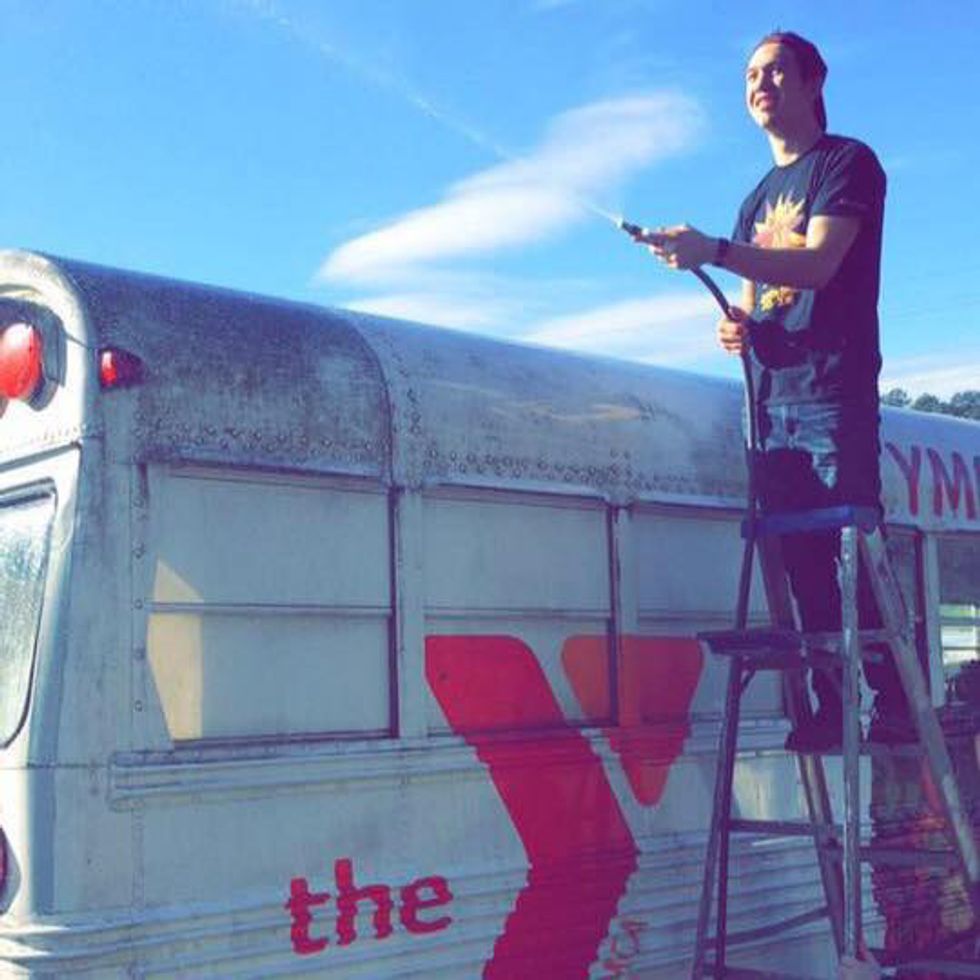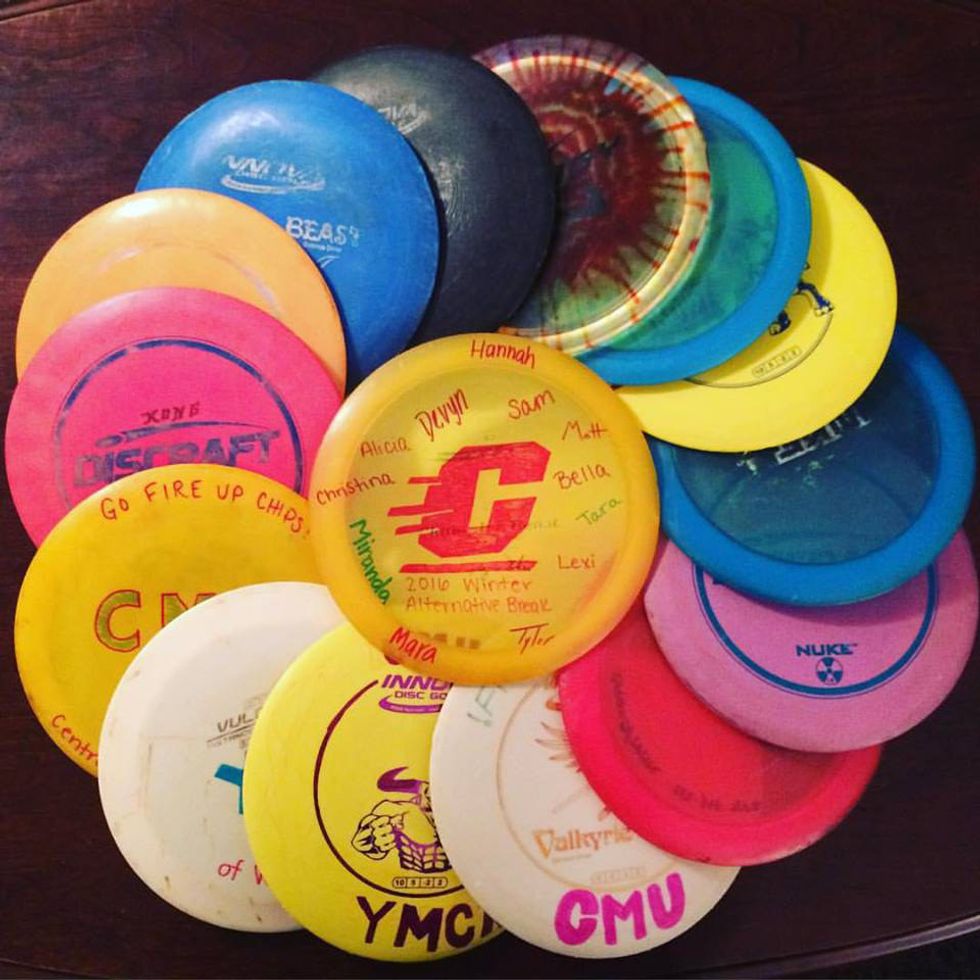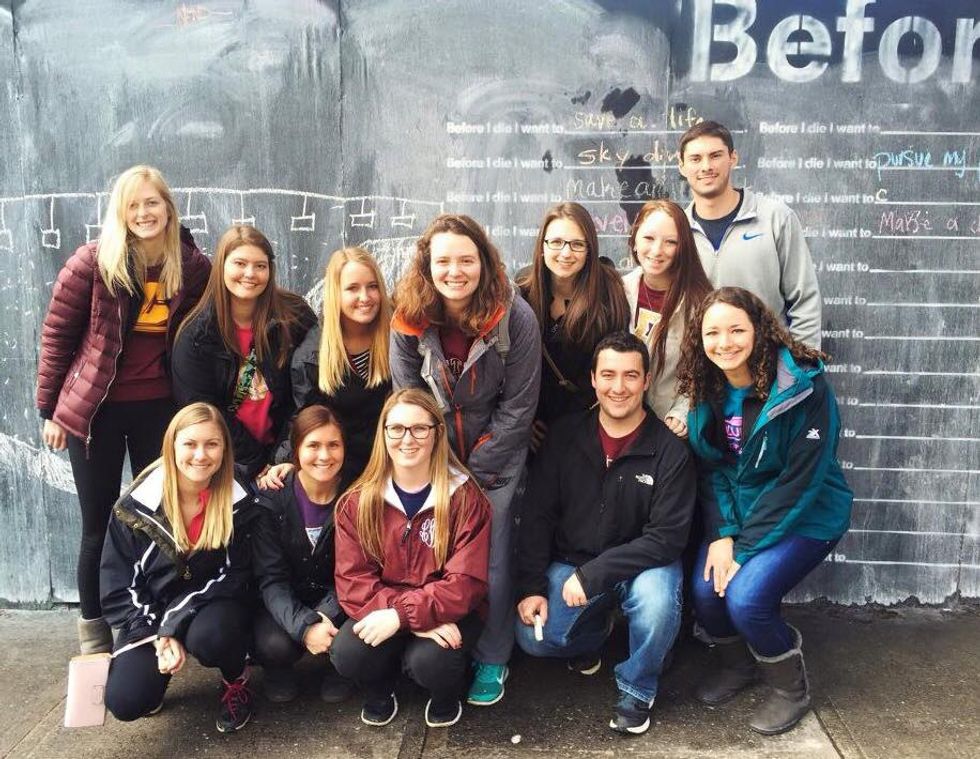Community service is something many of us were steeped in at a young age. Whether it was by choice, through an organization (Girl/Boy Scouts, youth group, etc.) or parent-influenced, many of us have spent Saturdays volunteering at charity races, weeknights stocking shelves at a food pantry or picking up trash after a football game. This part of life is something that I never really dissected until recently when my Alma Mater UNC Asheville was awarded "Top Impact School" by Princeton Review.
Community engagement continues to be high-priority for UNC Asheville, as well as many other universities. Whether that is through service learning classes, alternative break trips or general volunteering, community engagement continues to teach students outside of the classroom. But why is that important? What does community engagement teach students?
1. The world has so much more to offer than what is written in your textbook. Learning and reading from a textbook is important but it can only go so far. Until you are able to see the need of low-income populations and the lack of access to healthcare, reading the Affordable Care Act might not have a huge impact on your life. Until you are able to see how poor nutrition can hinder a child's learning and ability to play, you may not see a big significance in learning macronutrients and their impacts on the body. Or until you start picking up trash, you may not have thought twice about tossing that gum wrapper out of your car window.
2. The job you think you want, might not be the job you have always imagined. I spent a majority of my middle and high school years thinking I wanted to be a physical therapist. It was not until a service learning course in college exposed me to health promotion and public health that I fell in love with something that WAS NOT my dream. After that experience, I realized that I would be no good in a clinical setting but public health was a realm where my skill set (and heart) really were, and still are.
3. There are people, near and far, who need your time and attention. Hunger is a real issue in your community. Hunger is a real issue in most communities. Same with low reading levels and literacy rates among children. Same with inactivity in children. Same with lack of resources around housing and other services for veterans. Same with animal cruelty. Same with suicide and suicide prevention. There are people down the street from you who need your time and attention. Similarly, there are people all across this country and around the world who need your time and attention. When you take time to serve, take time to be served. It is amazing how many times we go into communities thinking we are there to help and teach them, when actually we are there to learn, to be taught and to be enlightened around issues we do not even see.
One student told me, "The skills we learn are applicable everywhere we go. The issues we work with aren't restricted to one community, and once we learn how to help we can take that knowledge and provide assistance in many different locations with those same hardships!"
4.Mentors come in all shapes and sizes. When you decide to serve, whether for class or voluntarily, you start to form relationships with community members who will teach you more than just how to cut an apple 15 different ways. You will learn from people who are serving every day to fight for one cause but you will also come across people who have been fighting for the same cause for decades. Hold on tight to those people. Serve alongside those people. Learn and ask questions. They are the ones who should be writing the textbooks, but instead they are putting their knowledge into action. Be like them. (Thank you, Dr. Ray and Cory for teaching me those things.)
5. You find like-minded people you may not have met otherwise. Through hosting alternative break groups from schools across the country (Central Michigan, Clemson University, Grand Valley State University--and the list goes on...), I have come into contact with like-minded students who are out to make a difference, to learn and to go back to their respective schools with new knowledge and experience to continue making a difference in their sphere of influence. The students we see leave us having experienced a new sense of need in a new area of the country and go back with new ideas to put in place new policies or new programs. They leave us and contact a few weeks later with plans of sending discs for the new disc golf they built in their time with us (thanks, Tyler!) or they call with a new idea for our program that hit them during their time in the library the night before. They realize there is so much more to schoolwork. They realize they have left a handprint and a legacy that will live on.
6. Service learning keeps on serving you. Since being out of college, I continue to go back to my experiences as a service learning student and use the skills I learned--the professional communication practices I was taught, among other things. Students I work with call and say they use their experiences with us in their day-to-day lives both personally and professionally. There are also friendships built, barriers broken and hearts changed when people work together.
A former classmate of mine recently told me: "My service learning turned into my first job, I was hired on the spot at the end of the semester. Sincere investment in these experiences can provide not only opportunity for personal growth, but also professional opportunity!! My biggest takeaway was that all people have an innate fear of change and the unfamiliar. In order to be successful, you have to foster an environment of trust, mutual respect and clear communication. Application of 'skills' we learned in school are useless until we have established meaningful relationships with others."
No matter what age you are, service is important. So whether you are a student now, or a parent of a student, get out of the classroom. (READ: I am not telling you not to go to class, that is important too!) Get out and experience real life. Face real issues with real people. Take what you have learned and what you continue to learn from textbooks and put it into practice.








 Photo by
Photo by  Photo by
Photo by  Photo by
Photo by  Photo by
Photo by 


 people sitting on chair in front of computer
people sitting on chair in front of computer



 all stars lol GIF by Lifetime
all stars lol GIF by Lifetime two women talking while looking at laptop computerPhoto by
two women talking while looking at laptop computerPhoto by  shallow focus photography of two boys doing wacky facesPhoto by
shallow focus photography of two boys doing wacky facesPhoto by  happy birthday balloons with happy birthday textPhoto by
happy birthday balloons with happy birthday textPhoto by  itty-bitty living space." | The Genie shows Aladdin how… | Flickr
itty-bitty living space." | The Genie shows Aladdin how… | Flickr shallow focus photography of dog and catPhoto by
shallow focus photography of dog and catPhoto by  yellow Volkswagen van on roadPhoto by
yellow Volkswagen van on roadPhoto by  orange i have a crush on you neon light signagePhoto by
orange i have a crush on you neon light signagePhoto by  5 Tattoos Artist That Will Make You Want A Tattoo
5 Tattoos Artist That Will Make You Want A Tattoo woman biting pencil while sitting on chair in front of computer during daytimePhoto by
woman biting pencil while sitting on chair in front of computer during daytimePhoto by  a scrabbled wooden block spelling the word prizePhoto by
a scrabbled wooden block spelling the word prizePhoto by 
 StableDiffusion
StableDiffusion
 StableDiffusion
StableDiffusion
 StableDiffusion
StableDiffusion

 women sitting on rock near body of waterPhoto by
women sitting on rock near body of waterPhoto by 








